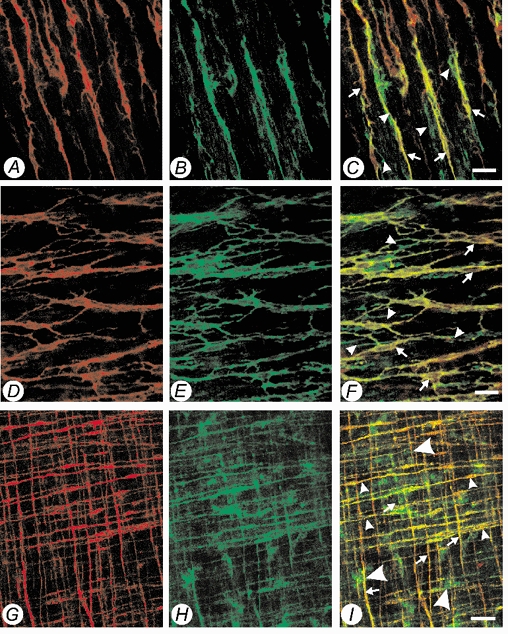Figure 4. Confocal micrographs of whole mount preparations of murine proximal colon and gastric fundus, showing double labelling of Kv1.1-LI (Alexa 488, green) and c-Kit-LI (Alexa 594, red) within the muscularis externa.

A, c-Kit-LI (Alexa 594, red) within the circular muscularis at the level of the sub-mucosal border of the proximal colon. B, Kv1.1-LI (Alexa 488, green) within the circular muscularis at the level of the sub-mucosal border of the proximal colon of the same specimen. C, co-localization of Kv1.1-LI and c-Kit-LI (yellow) showing that intramuscular ICC (arrows) and juxtaposed varicose nerve fibres (arrowheads) express Kv1.1. D, c-Kit-LI (Alexa 594, red) at the level of the myenteric plexus. E, Kv1.1-LI (Alexa 488, green) at the level of the myenteric plexus of the same specimen. F, co-localization of Kv1.1-LI and c-Kit-LI (yellow) showing that both the cell bodies (arrows) and intricate processes of myenteric ICC are immunopositive, note also myenteric ganglia (arrowheads) and neuronal processes are also immunopositive for Kv1.1. G, c-Kit-LI (Alexa 594, red) within the circular and longitudinal muscularis of the gastric fundus. H, Kv1.1-LI (Alexa 488, green) within the circular and longitudinal muscularis of the gastric fundus of the same specimen. I, co-localization of Kv1.1-LI and c-Kit-LI (yellow). Intramuscular ICC in both the longitudinal muscularis (arrows) and circular muscularis (arrowheads) are immunopositive for Kv1.1. Myenteric ganglia are also immunopositive for Kv1.1 but not for c-Kit (large arrowheads). (Scale bars: A–F, 20 μm; G–I, 50 μm.)
